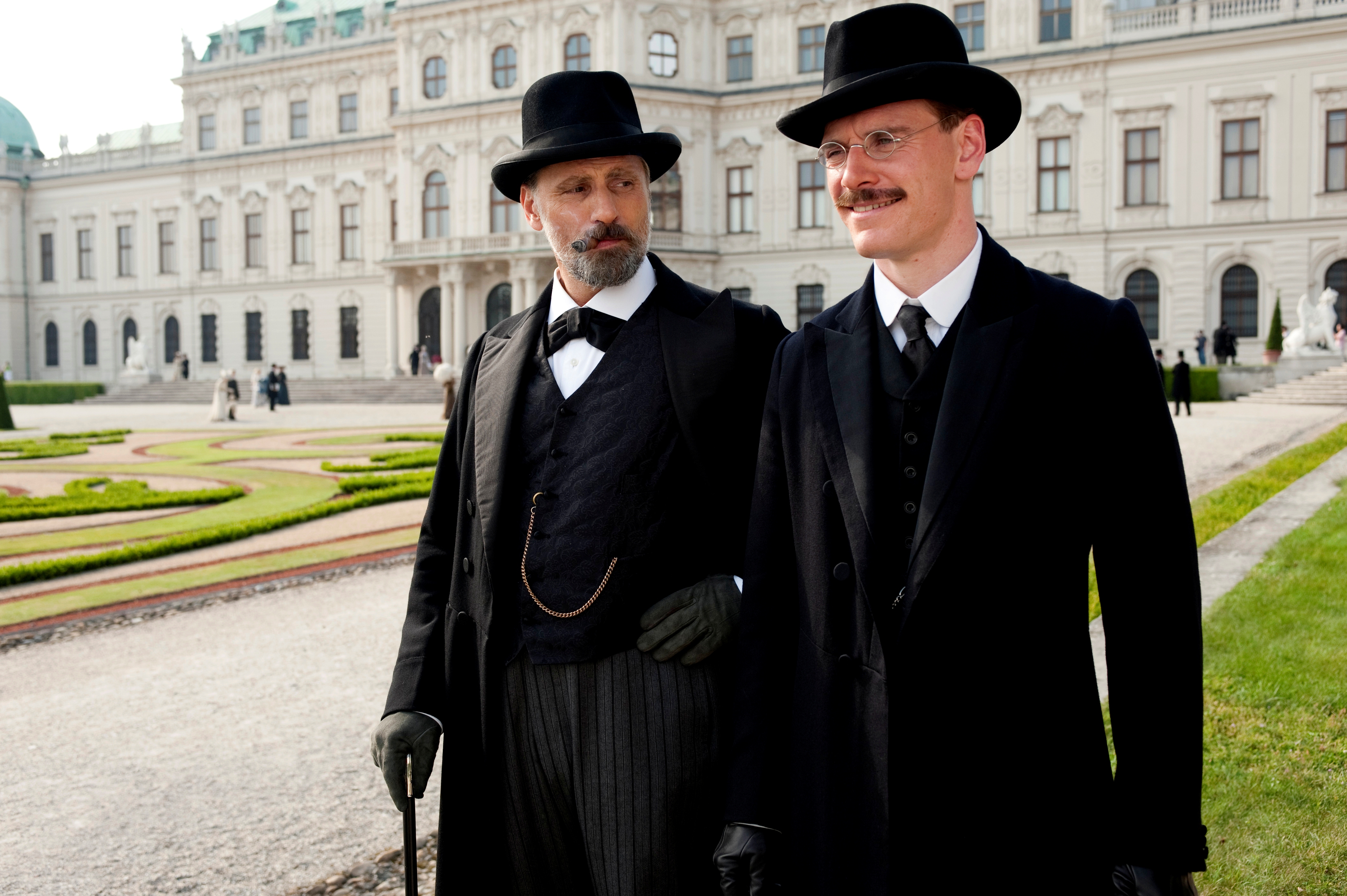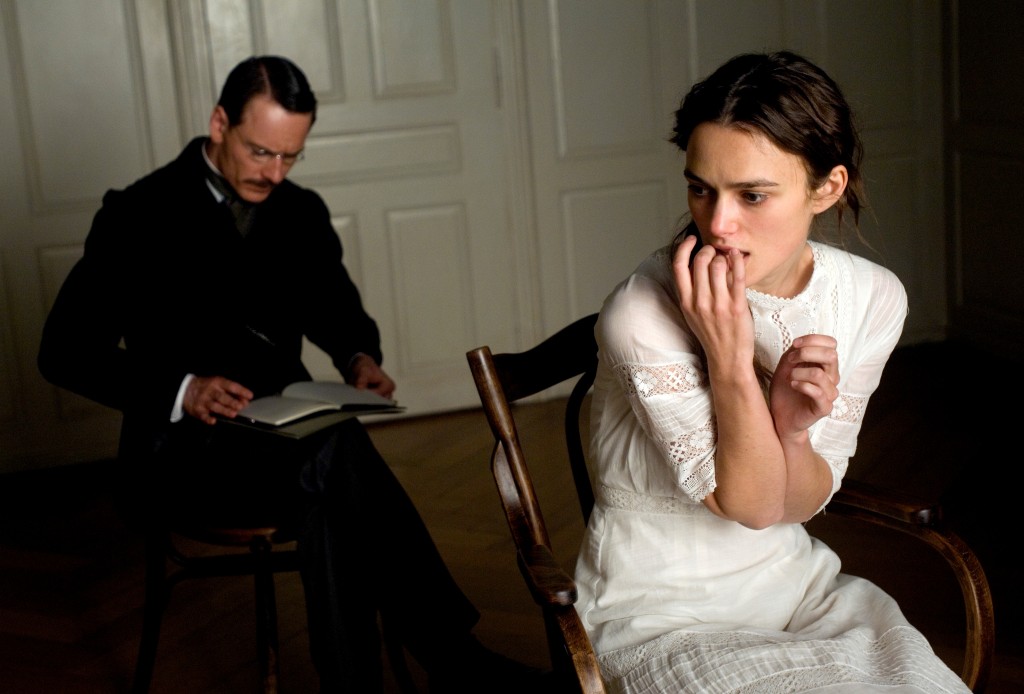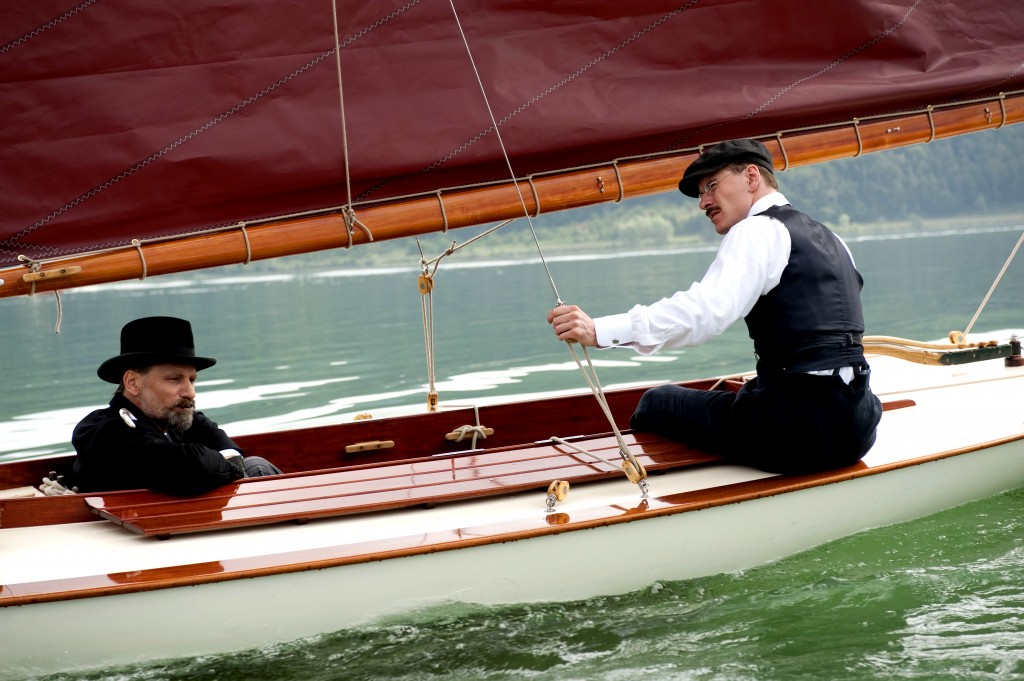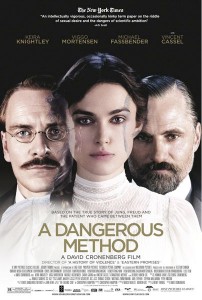
Intellectually stirring and mind-opening. A Dangerous Method audaciously delves into the birth and formation of psychoanalysis in the early 1900’s with Sigmund Freud (Viggo Mortensen) in Vienna and Carl Jung (Michael Fassbender) in Zurich. This is new territory for director David Cronenberg (“A History of Violence,” “Eastern Promises”) who has never plunged into the past like this before nor so elegantly, but as applicable, he reprocesses his themes of split identities and sexual impulses into a new elucidated perspective. Significantly, this is a film where great intelligent minds got together to compose, inscribe, and materialize the description of modern psychology, where Freud and Jung argued over whether sexual drives impacted the core of the self or whether unveiling matters of the unconscious was most important in a person’s pursuit to happiness. To think that the history of psychology was cultivated in these formative years and would impact society a century later is more than just a notion, it’s a profound contemplation.
Jung’s first practices with psychoanalysis included work with patient Sabina Spielrein (Keira Knightley), who was incapacitated by a severe, dirty sexual shame that was relieved when he infused her with rehabilitated focus and self-acceptance. Psychoanalysis was something that Jung read about in Freud’s periodical work, but he seemed much more driven to make practice of it. Knightley is powerful in her role as a woman broken to pieces, all nerves unstrung, who makes a miraculous recovery to a woman with poise. But it’s Cronenberg who has risked all to direct Knightley to go for broke (Still, there will be naysayers that will accuse overacting by Knightley). Is it possible that shame was much deeper back then in a society enclosed by repression?
Through their correspondence, Jung would eventually travel to Vienna to meet the great Sigmund Freud who presided over every meeting with his implacable authority. In a number of well-tailored scenes, Jung and Freud would wax on for hours about the meaning of human identity, with Freud in junctures cleverly belittling Jung. If Freud’s philosophical/psychological theories and techniques carried on with more popularity than Jung’s a century later, it may have come that way because Vienna was by convenience the geo-center for the psychology boom, with a majority of Freud’s colleagues becoming his disciples.
As it were, Freud had several reasons to be jealous of Jung although his portentous exterior would mask such feelings – he is the smartest, most poised man around so how could he succumb to such childishness? Perceivable insecurities simply might come down to Freud not having an adventurous sex life and Jung having a varied and diverse one. There are also hints by Freud at a discreet animosity towards Jung who had to travel by second-class while Jung came from a family of exorbitant wealth. Yet Jung felt shame for the adulterous life he would eventually lead, so overwhelming it broke him into depression after the film’s events are over.
Jung had a proper wife at home with Emma (Sarah Gadon), a dutiful but self-doubting woman who never felt good enough for her husband. Weakness does not appeal to a human’s sexual hunger. Yet Jung’s idea of adultery never entered his mind until patient Otto Gross (Vincent Cassel) introduced it to him. Jung didn’t act first, Sabina did, this coming after she had left the mental hospital, entered a collegiate psychology program, and looked up to Jung as a mentor and then lover.
By acting out their sexual drives, Jung was hindered by guilt in all facets of his life, received scorning from Freud, and developed an obsessive-compulsive sexual appetite all in the process. Sabina’s sexual fetish was bending over and being roughly spanked – this is the act that had once paralyzed her, and yet now, Jung chose to participate in acts of sexual degradation. Arguably, he was letting her carry on with her most primitive, unconscious desires. But in doing so, their shared behavior emanated from Freud’s idea of a person’s desire to act upon their sexual will is what liberated them.
All these ideas are so powerfully encompassing that they have naturally taken precedence in this review. Yet the richness of the period detail in “A Dangerous Method” cannot be ignored. The splendor of the scenery throbs with historical authenticity, and the ornamental set design and costumes suggest a society of rigidness and oppression – this makes the saucier sexual perversions stand out more distinguishably in rebellious contrast, really sticking it to Victorian repression.
Then there are the brilliant nuances of the actors at work. Mortensen has never done better work in his career than what he’s done with Cronenberg, this being his third straight success following “A History of Violence” (2005) and “Eastern Promises” (2007). Fassbender, who was most impressive two years ago in Steve McQueen’s “Hunger,” occupies upper crust intelligence as well as discernible disgrace for his non-heroic behaviors. Personality flaws are magnified in “A Dangerous Method,” but with clarity, you can see how Freud and Jung together shaped the psychoanalysis vocabulary for the 20thand as well the 21stcentury and that is nothing less than monumental.
The most provocative line in the movie is courtesy of Otto Gross, on the topic of sex: “It seems to me a measure of the true perversity of the human race that one of its very few reliably pleasurable activities should be the subject of so much hysteria and repression.”
99 Minutes. Rated R.
HISTORICAL DRAMA / FOOD FOR THOUGHT MOVIE / FALL SCHOLASTICS
Film Cousins: “Two English Girls” (1971, France); “Dead Ringers” (1989); “The Son’s Room” (2001, Italy); “The Century of the Self” (2002, Great Britain).







